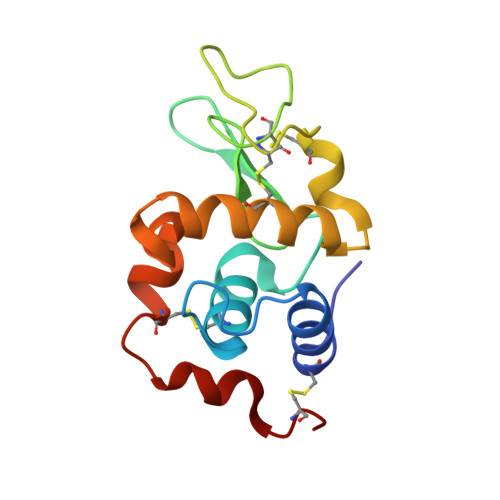The influence of temperature on lysozyme crystals. Structure and dynamics of protein and water.
Kurinov, I.V., Harrison, R.W.(1995) Acta Crystallogr D Biol Crystallogr 51: 98-109
- PubMed: 15299341
- DOI: https://doi.org/10.1107/S0907444994009261
- Primary Citation of Related Structures:
1LSA, 1LSB, 1LSC, 1LSD, 1LSE, 1LSF - PubMed Abstract:
Lysozyme structures at six different temperatures in the range 95-295 K have been determined using X-ray crystallography at a resolution of 1.7 A. The crystals at lower temperatures had a 7.4% decrease in the unit-cell volume. The volume change was discontinuous with the volume being near 238 000 A(3) from 295 to 250 K and about 220 200 A(3) below 180 K. The thermal expansion of the protein has been analyzed and shows anisotropy, which is correlated with local atomic packing and secondary-structure elements. The lysozyme structure at low temperature is nearly the same as that at high temperature, with only small relative translations and rotations of structure elements including a hinge-bending rearrangement of two domains. Because of a considerable increase of lattice disorder at low temperature dynamical analysis of internal motion is difficult. The analysis of structural and dynamical properties of well ordered protein-bound water has been carried out.
Organizational Affiliation:
Department of Pharmacology, Thomas Jefferson University, Philadelphia, PA 19107, USA.














